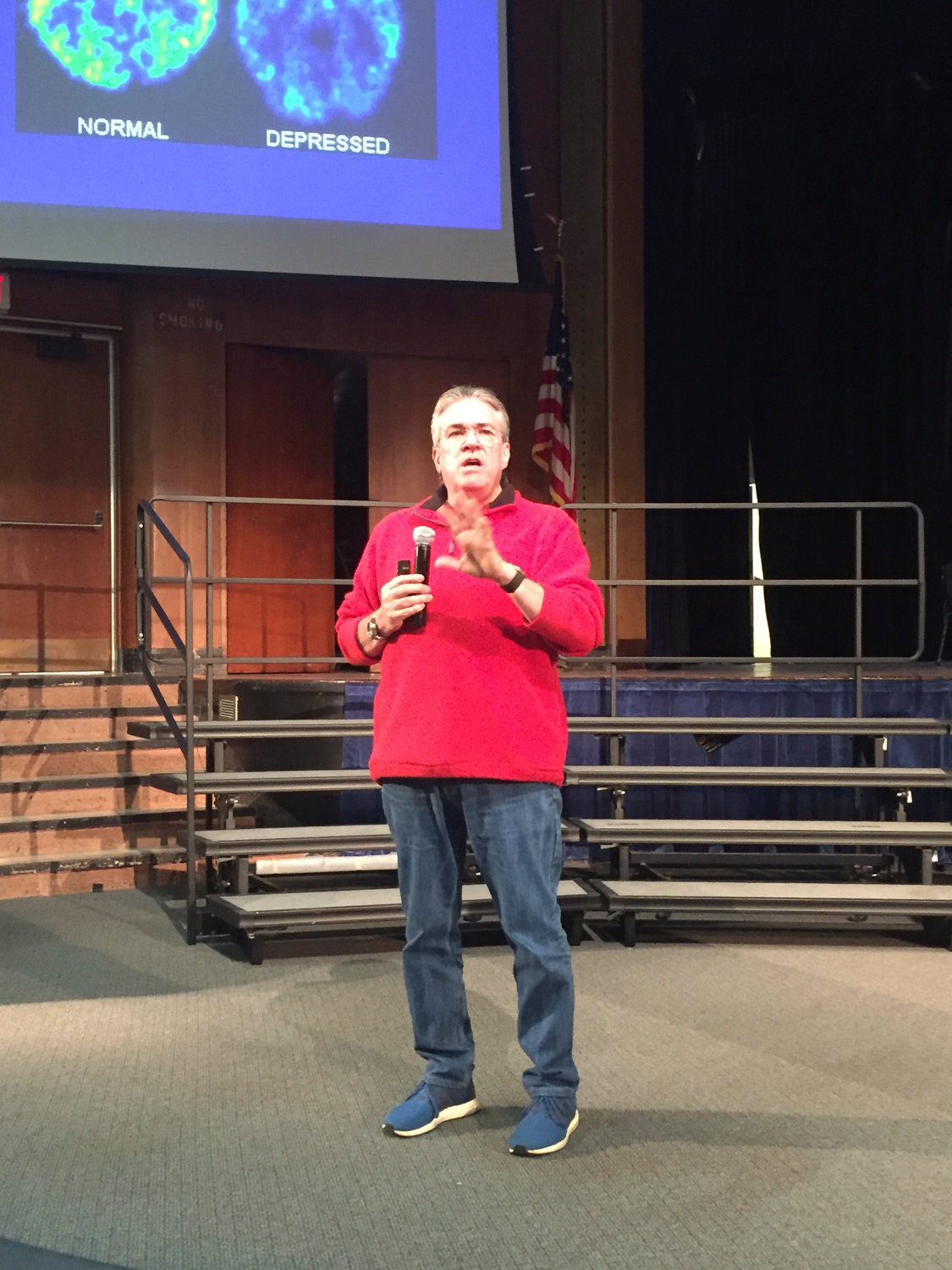Tackling drug addiction with Dr. Stephen Dewey at Hewlett High School
A portion of Hewlett High School parents were surprised to find out some facts about addiction and its effects on the brain from Dr. Stephen Dewey when he spoke on March 5.
Santhosh Chinnappala, a Hewlett resident and parent of a Hewlett High sophomore, came away shocked. “I wish there were a million parents that got to see this presentation tonight,” he said.
The title of Dewey’s speech was “Understanding the Effects of Addictive Substances on the Teen Brain.” Dewey currently serves as a Neuroscientist and Research professor at New York University’s School of Medicine. He also runs a research facility at NYU that studies addiction and he noted that his patients vary in age and so do the issues they have. “My youngest patients are fourth-graders who are alcoholics that drink a quart of gin every day,” Dewey said. “My oldest patient is an 86-year-old who’s addicted to methamphetamines.”
Dopamine levels not only increase when an addict is using their substance of choice but according to Dewey, it the levels also leap in anticipation of using the substance. “At our research facility, we’ve shown active methamphetamine users a picture of the substance and they had a 50 to 55,000 percent increase in dopamine levels,” he said. “I’ve showed my nine-year-old patients pictures of gin and their dopamine levels went up 20,000 percent.
Dewey noted that addiction is caused by dopamine, which is a neurotransmitter that everyone has in their brains. “When a human is happy, their dopamine levels increase by four to five percent. When they’re sad, it will decrease by four to five percent,” Dewey said. “When somebody uses methamphetamines, their dopamine levels on average increase by 900,000 to 1.3 million percent.”
Before the nighttime talk, Dewey had the spent the day at Hewlett High School discussing addiction with the students. He then reflected on what he thought about speaking with the students. “It was great talking with the students largely in part to the thought-provoking questions that they asked,” Dewey said. “Before I left, they even surrounded me in the parking lot asking more questions.”
He noted that he’s been visiting schools speaking about addiction since 1994. During the nearly 25 years of talking, he’s had to change the content. “One person last week mentioned how they’ve used ketamine, so I’ve since added ketamine to the presentation,” he said. “I change up my presentation quite often.”
Discussing alcohol addiction, Dewey touched on how instead of teenagers just drinking the alcohol, they are now “eyeballing” it, which is consuming the alcohol, usually a clear liquor, through their eyeball. This is done so teens are able to get a quicker buzz and they have a better chance of passing a breathalyzer test, he said.
Hewlett resident Debbie Flores also has a 10th grader at Hewlett High. She was floored by some of things she heard during the event. “To know that kids are doing things such as ‘eyeballing’ at parties right in front of parents is shocking,” she said.
Chinnappala reflected on everything he learned and said that a fair share of the responsibility for teenage addiction lies with his peers. “As parents, we have to set a better example for our children,” he said.







